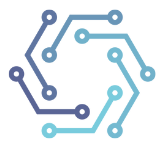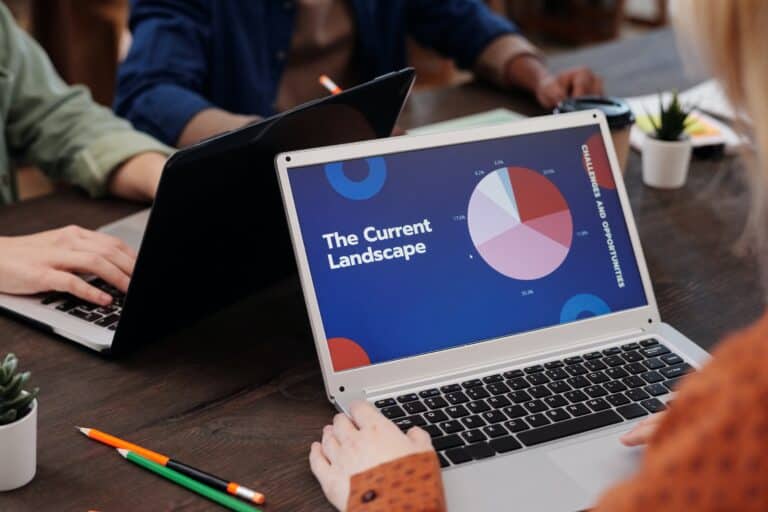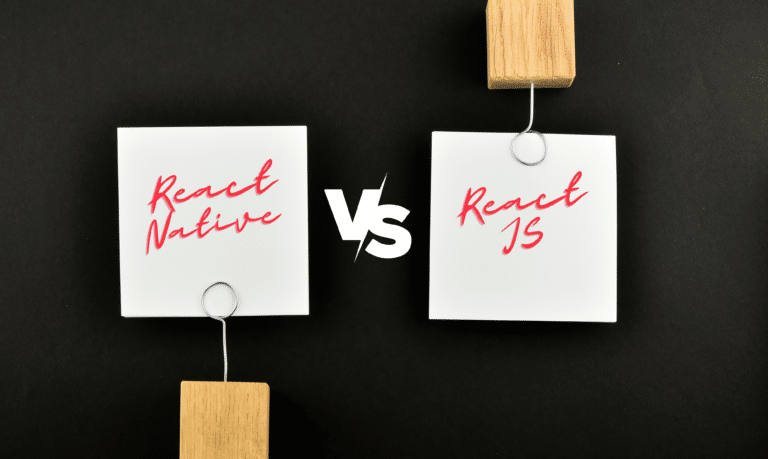How to Interview a Python Developer and What to Look For?
Whether you are a manager looking to fill a vacant Python developer role or an employer who wants to interview potential candidates, knowing what questions to ask and the desirable qualities of a successful candidate are vital for ensuring you find the best person for the job.
Whether gauging aptitude for problem-solving or demonstrating technical acumen in any given situation, specific vital points should be considered throughout your interview process.
This blog post will examine how to properly conduct an effective Python developer interview and discuss some of the most important traits recruiters should look out for when interviewing applicants.
What You Need to Know Before Interviewing a Python Developer
Are you looking to hire a Python developer but need to know how to interview one? If so, you’re in the right place. In this blog post, we’ll discuss what to look for when interviewing a Python developer and how to ensure that you get the best fit for your team.
What is Python?
Before interviewing potential Python developers, it’s essential to understand what Python is and why it is used. Python is a high-level programming language that is easy to learn, powerful enough for complex applications, and versatile enough for web development, scripting, scientific computing, data analysis, and more.
It’s become increasingly popular over the past few years due to its ease of use and ability to create dynamic applications quickly.
What Qualifications Should You Look For?
When interviewing a potential Python developer, there are specific qualifications that you should look for.
- A good candidate will have experience with object-oriented programming (OOP), and be familiar with various frameworks such as Django or Flask.
- Have experience building web apps with HTML/CSS/Javascript/Python libraries like jQuery and Bootstrap
- Be comfortable working with databases such as PostgreSQL or MySQL, and understand software design patterns like Model–View–Controller (MVC).
- Understand DevOps principles like continuous integration (CI) and deployment (CD).
- The candidate should also be able to demonstrate their programming skills in a code test or through previous projects they’ve worked on.
- It’s essential that the candidate can explain the thought process behind their coding decisions as well as show knowledge of debugging techniques.
- Lastly, it’s helpful if they have an understanding of version control systems like Git/SVN. These are qualities you should look for when interviewing a potential candidate.
How Can You Test Their Skills?
Once you’ve identified some potential candidates who meet your requirements, it’s time to start testing their skills to make sure they’re the right fit for your team. One way to do this is by giving them a coding challenge in which they would need to solve a problem using Python or write code from scratch.
This will give you an idea of how well they know the language and how they approach problems logically. Another way is by having them debug existing code or tweak existing features on your app or website—this will show how well they can work with the existing codebase and pick up on things quickly.
Finally, it’s always helpful if they can provide references from past employers who can vouch for their abilities as a programmer.
Create a hiring team to conduct developer interviews.
Interviewing a candidate for a Python developer role is an important task. That’s why it’s best to build a hiring team that includes people from various departments with technical backgrounds. This way, the team can look at multiple aspects of each applicant.
For example, different hiring team members could assess their qualifications, programming skills, and communication abilities. Interviewing in teams can also make the process more efficient since it gives applicants opportunities to interact with everyone they would be working with if they got the job.
Plus, since team members come from diverse backgrounds, they bring in more perspectives and brainstorm ideas during the process. A successful hiring experience depends on getting this right!
Interviewing Developers in Stages
Interviewing developers can be a complex process when it comes to finding the right person for the job. You want to ensure you get the most qualified candidate who fits the job description. One way to ensure you get the best fit is by interviewing developers in stages.
This includes three steps; screening interviews, skill assessments, and final interviews. Let’s explore why this is so important for finding the right developer.
Screening Interviews
The first stage of interviewing developers is to conduct a screening interview. This involves asking basic questions to determine if the candidate has what it takes to perform the core duties of the position they have applied for.
Questions may include inquiring about their experience coding or working with specific software applications. This is a great way to weed out applicants who don’t meet your initial criteria and narrow down your list of potential candidates.
Skill Assessments
After conducting screening interviews, you can move on to skill assessments. Skill assessments involve testing a candidate’s knowledge of specific coding languages or software applications used in their job role.
These tests are designed to assess a candidate’s proficiency level with specific tasks and how well they can handle problem-solving scenarios related to those tasks. Testing out a developer’s knowledge gives you a better idea if they have what it takes to do the job and whether they can learn new skills as needed in their role quickly.
Final Interview
The last step of interviewing developers is having them come in for a final interview, where you can ask more detailed questions about their qualifications and experience related directly to your project needs and specifications.
This is also an opportunity for each side (candidate and employer) to understand expectations, roles, responsibilities, and company culture before making any decisions about hiring someone full-time or part-time.
It also allows both parties to decide if it makes sense for them to work together long-term before committing too much effort to train someone who may not be suitable for long-term employment at your company.
Interview Questions for Developers
As someone either looking for their first job in the development field or transitioning to a more experienced role, having the right interview questions can make all the difference.
It’s important to ask yourself what areas you need to brush up on and have questions ready to give you an idea of your day-to-day job. Let’s look at some of the best questions to ask when interviewing for a developer position.
What Kind of Projects Have You Worked On?
This question is essential because it gives you an insight into your potential boss’ experience and success rate. If they can answer this question in detail, they have had plenty of projects.
Additionally, it’s also essential to get an understanding of how much responsibility they will put on you if hired. This way, you know exactly what type of work environment you are getting into.
How Do You Approach Debugging?
As a developer, debugging will likely be part of your daily tasks. Asking this question gives you an idea of how well your future employer understands the process and their attitude toward problem-solving.
Two critical traits for developers! Being able to debug quickly and accurately is essential in any development project, so ensure your boss knows exactly how it should be done correctly.
What Are Your Expectations from Your Developers?
This is another important question as it allows you to determine whether your expectations match your future employer’s expectations.
Knowing this ahead of time helps avoid confusion or frustration when starting with a new team or company. Furthermore, asking about their expectations also gives insight into the projects you might work on in the future and allows you to decide if this job is right for you.
Interviewing Developers: Some Advice
You’ve likely heard that interviews are one of the most important steps in the hiring process. But how do you know which skills to look for, what type of questions to ask, and how to interpret the answers? Don’t worry—we’ve got you covered! Read on to learn our top tips for interviewing developers.
Decide Which Skills Most Appeal To You
When it comes to hiring a developer, there’s no one-size-fits-all approach. Every job is different, and so should the skillset required. Make sure you decide which skills are most important and relevant for the job. This will help you focus your search and decide which questions to ask during the interview.
Make The Tests Suitable For The Job
Developers come with a wide range of expertise, from coding languages like Python and Java to frameworks like React or Angular. You must make sure the tests are tailored toward their specific skill set.
You don’t want to give them an unnecessarily complex test if they’re unfamiliar with a particular language or framework. This could lead them to fail even if they have other valuable skills.
Create Questions With Several Angles
No matter what type of developer you’re looking for, it’s essential that you create questions from several angles. This lets you know how well they understand different aspects of development and gives them more room to provide detailed answers.
It’s best practice to ask “yes” or “no” questions and open-ended ones that require detailed responses.
Request The Same Information From Each Candidate
No two developers are alike, yet each candidate must be asked the same questions so that their responses can be compared objectively against each other when making a decision. By asking everyone the same questions.
It allows you to identify who is best suited for your team and who has demonstrated mastery over specific topics or frameworks necessary for success in the role.
Base Decisions On The Applicant’s Most Vital Skill
When deciding which candidate is best suited for your team, try to avoid getting bogged down by minor details such as syntax errors or typos in their code samples.
Focus instead on their understanding of concepts and problem-solving abilities, as these will be far more vital skills in their day-to-day work than minor technical details can ever be.
Look To Other Companies For Advice
Finally, don’t forget that you can always turn to other companies or industry professionals for advice when interviewing developers—especially if this is your first time doing so! It never hurts to get some extra insight into how others approach things.
So take advantage of any resources available before making your final decision!
Assessing Candidates After Interviews
When considering a new hire, assessing the candidate’s fit for the job can be challenging. The interview process is often a great way to get a feel for how well the individual might fit in with your team.
Still, there are several additional skills and qualities that you should consider when evaluating your potential new hire. Here are six key things you should look out for when assessing candidates after their interviews.
Clear Communication
Clear communication is incredibly important in any role, especially when it comes to tech-related positions. During the interview, ask questions that will help you gauge whether or not the candidate has excellent communication skills.
This can include verbal and written communication—the ability to explain complex concepts in simple terms and effectively communicate through email and other digital mediums.
Attention to Detail
When working with technology, attention to detail is paramount. You want someone who can pay close attention to every development step and ensure that nothing gets overlooked. Asking specific questions about how they would approach solving a problem or completing a task can help determine how acute their attention to detail is.
Optimized Solutions
Another essential skill for many tech positions is the ability to come up with optimized solutions. Ask your candidate what strategies they would use when faced with a given problem or how they might find an optimal solution if one isn’t immediately apparent.
This requires creative thinking, problem-solving abilities, and sometimes even some trial and error—all of which are essential traits for any great programmer or software developer.
Time Management
Time management is another essential quality in tech jobs; projects must be completed on time to meet deadlines and achieve goals without delay.
Ask about the techniques your candidate uses for managing their time effectively during the interview; this could range from breaking down tasks into smaller chunks to setting up reminders throughout their day, so they remember everything necessary.
Code Quality & Functionality
Finally, assessing a potential new hire would only be completed by looking at code quality and functionality.
Suppose you’re hiring someone whose primary job will be to write code. In that case, having them demonstrate their coding abilities during the interview gives you an invaluable insight into their actual skillset—and whether or not they’d be able to handle challenging tasks down the line!
Conclusion:
In conclusion, interviewing a potential Python developer can seem daunting if you need to know what qualifications or skillsets you should be looking for to find the right person for the job. With these tips in mind, interviewing your next great programmer won’t seem intimidating.
By understanding what makes a good candidate and knowing how best to test their skillset during the interview process, you’ll be able to increase your chances of finding someone who perfectly fits your team’s needs! Good luck!













